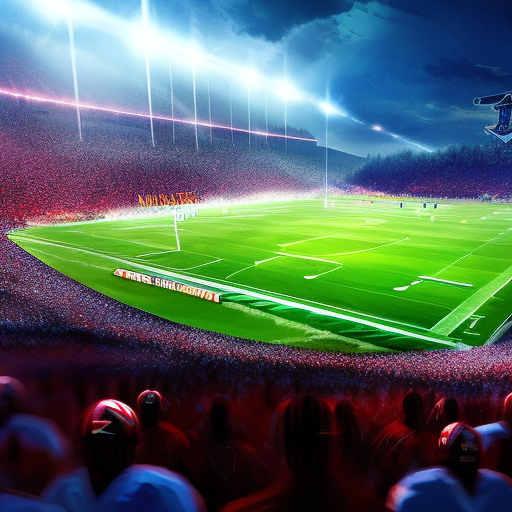One-line summary:
Friday Night Lights is a gripping non-fiction book that explores the intense world of high school football in the small town of Odessa, Texas, revealing the pressures and expectations placed on players, coaches, and the community.
The Small Town Obsession with Football
Friday Night Lights takes readers on a journey into the heart of Odessa, Texas, a town where high school football is more than just a game—it’s a way of life. The book, written by H.G. Bissinger, delves into the 1988 season of the Permian High School Panthers, capturing the hopes, dreams, and struggles of the players, coaches, and community members.
In Odessa, football is not just a sport; it’s a religion. The town revolves around the Friday night games, with the entire community coming together to support their team. The book explores the immense pressure placed on the players, who are expected to be the best and bring glory to their town. The obsession with football is so intense that it often overshadows other aspects of life, leading to a sense of isolation and despair for those who don’t fit into the mold of a star athlete.
The Players’ Sacrifices and Struggles
Friday Night Lights provides an intimate look into the lives of the players on the Permian Panthers team. These young athletes face immense pressure to perform well on the field, as their entire future seems to depend on it. They sacrifice their bodies, time, and personal lives for the sake of the game, enduring grueling practices, injuries, and constant scrutiny.
The book follows several key players, including Boobie Miles, a talented running back whose dreams of a college football career are shattered by a devastating knee injury. Boobie’s story highlights the harsh reality that even the most promising athletes can have their dreams crushed in an instant. The book also explores the racial tensions within the team, as black players often face discrimination and unequal treatment.
The Coaches’ Burden and the Community’s Expectations
Friday Night Lights also delves into the lives of the coaches who bear the weight of the town’s expectations. Coach Gary Gaines, in particular, is under immense pressure to lead the team to victory. He faces criticism from fans, parents, and even the school administration, all of whom have high expectations for the team’s success.
The book explores the sacrifices and personal toll that coaching takes on Gaines and his family. It also sheds light on the challenges faced by other coaches, who struggle to balance their desire to win with the need to mentor and guide their players.
Key Takeaways:
- The intense pressure placed on high school football players can have a detrimental impact on their mental and physical well-being.
- The obsession with football in small towns can overshadow other aspects of life and lead to a sense of isolation for those who don’t fit into the mold of a star athlete.
- Racial tensions and discrimination can be prevalent within high school football teams.
- Coaches face immense pressure to lead their teams to victory and often sacrifice their personal lives for the sake of the game.
“Being perfect is not about that scoreboard out there. It’s not about winning. It’s about you and your relationship with yourself, your family, and your friends. Being perfect is about being able to look your friends in the eye and know that you didn’t let them down because you told them the truth. And that truth is you did everything you could. There wasn’t one more thing you could’ve done. Can you live in that moment as best you can, with clear eyes, and love in your heart, with joy in your heart? If you can do that, gentlemen, then you’re perfect.”
– Coach Gary Gaines
In conclusion, Friday Night Lights offers a captivating and eye-opening exploration of the world of high school football in a small town. It sheds light on the sacrifices, pressures, and expectations faced by players, coaches, and the community. The book serves as a reminder of the intense passion and obsession that can surround sports, while also highlighting the toll it can take on individuals.












